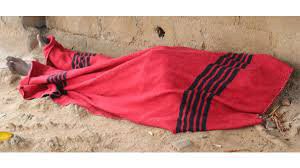“Spare The Rod, Spoil The Child,” Auxillia Says Banning Beatings Has Made Kids Go Wild
First Lady Auxillia Mnangagwa has urged parents to use corporal punishment on their children, arguing that the ban on physical discipline has contributed to rising social problems among Zimbabwe’s youth.
Speaking at her Gota/Nhanga Program, a cultural and moral restoration initiative held at Mawungwa Secondary School on Monday, Mnangagwa addressed hundreds of women and schoolchildren.
She told parents that whipping children on the feet is less likely to cause serious injury, while stressing that the prohibition of corporal punishment has coincided with increases in early pregnancies, juvenile delinquency, drug abuse, and school dropouts.
Mnangagwa criticised what she described as “newly found” children’s rights and called for a return to traditional parenting practices. Said Mnangagwa:
“These new freedoms result in unwanted pregnancies, drug and substance abuse cases, school dropouts and juvenile delinquencies.
“We didn’t have those rights growing up, our parents whipped us into line and we were very disciplined.
“How do we handle these children who are the future? If you whip them, they report you to the Police and can even lie that you wanted to rape them. Whip your children into line. Whip the legs to discipline them.”
Mnangagwa’s remarks align with those of several high-ranking officials, including legislators, who have publicly criticised the court ruling that declared Article 60(2)(c) of the Education Act unconstitutional.
In 2018, respected High Court Judge Justice Joseph Mafusire openly expressed his disagreement with the ban on corporal punishment during a prize-giving ceremony at Kutama College, telling children, teachers, and parents that he believed the decision was misguided.
Similarly, Primary and Secondary Education Minister Torerai Moyo recently told trade union representatives that banning corporal punishment was a mistake, arguing that it has made it difficult for teachers to maintain discipline both inside and outside the classroom.
The ban on corporal punishment followed a series of High Court rulings. In 2015, Justice Esther Muremba ruled that corporal punishment was unconstitutional, and in 2017, Justice David Mangota struck down sections of the Education Act and the Education (Disciplinary Powers) Regulations of 1985 that had previously authorised it.




